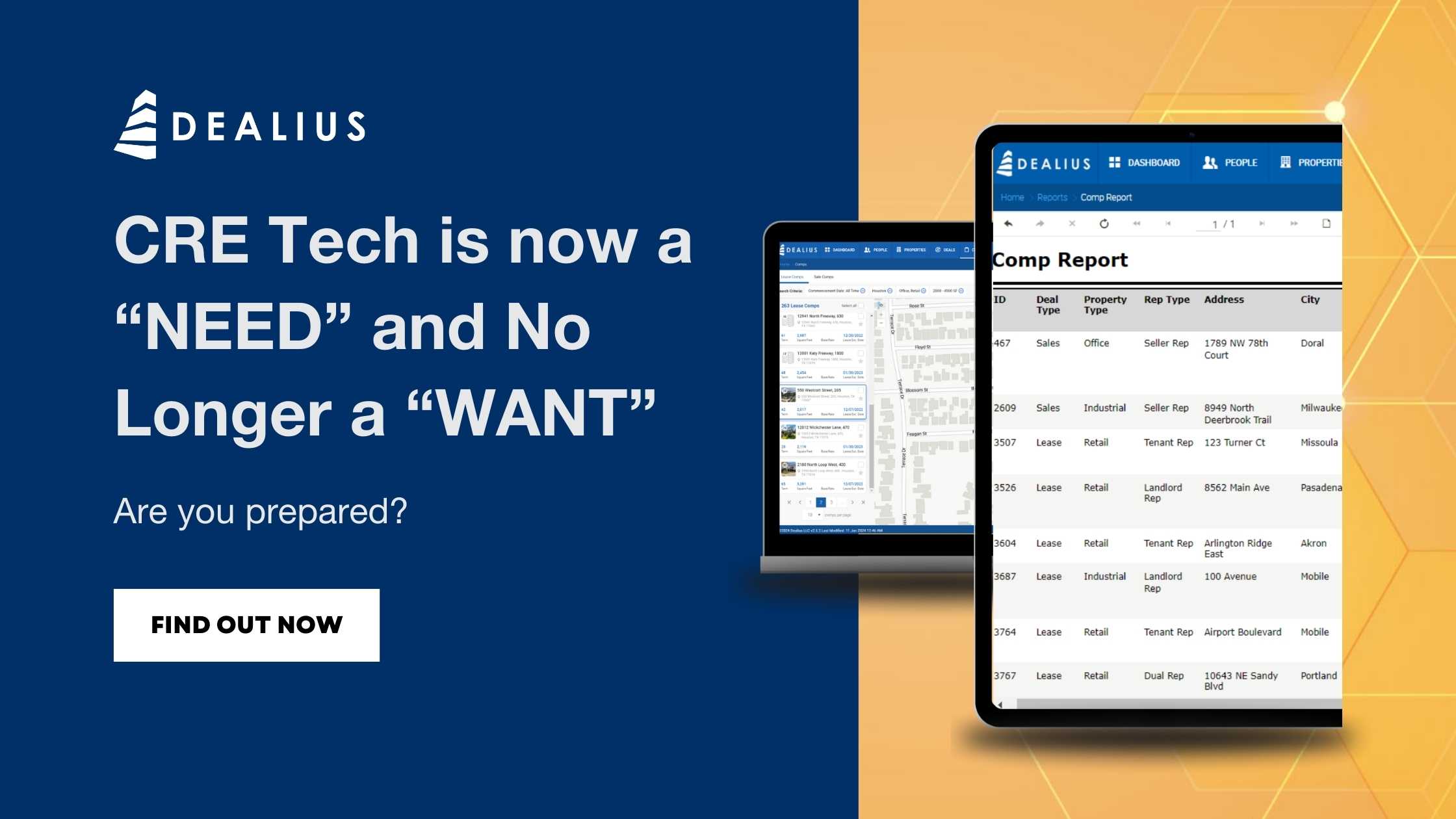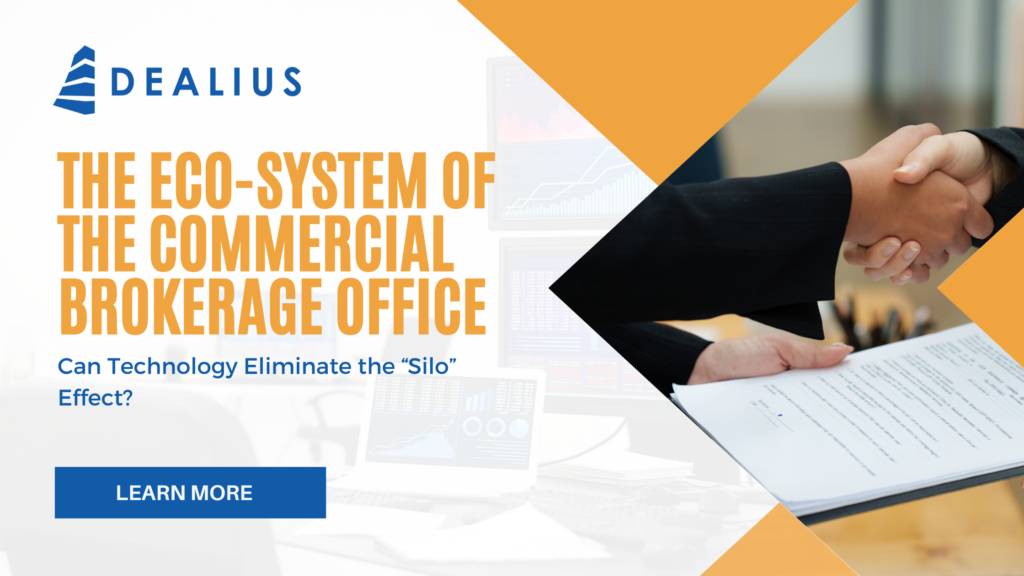CRE Tech is now a “NEED” and No Longer a “WANT” Are you Prepared?
October 4, 2023
In the realm of commercial real estate brokerage, a prevalent theme revolves around the challenges of adopting technology, notably CRE Tech. This may have been prevalent a few years ago but the industry is now seeing a shift in behavior. Brokerage owners and brokers are adopting and understanding the importance of technology in their day-to-day operations, increasing productivity, and being competitive in the market.
In today’s data-driven world, relying primarily on what used to work is no longer the status quo. The need and not want for technology driven solutions is becoming increasingly evident.
There are several core areas when considering the impact of technology (CRE tech) in commercial real estate:
- Efficiencies in the Transaction Process:
In CRE, efficiency is essential, and technology has played a more essential role in achieving this. Brokers have access to tools that help manage and automate daily tasks, including transaction related activities.
CRM systems have evolved from the desktop databases of Access and Excel to cloud-based broker centric options, which include automation features, and advanced analytics. These CRMs help capture and analyze prospect data, aid in forecasting, and streamline the transaction process.
- Providing Real-Time Data into Your Brokerage Business:
In today’s environment having access to critical data to make informed decisions not just for the broker but their clients is essential. The days of using Excel, which still a great tool, does not allow for the average excel use to leverage automation, business intelligence and critical forecasting or data driven decision without having an expertise in Excel. Brokerage Platform are now solving this for brokers and brokerage owners through CRE Technology.
- Document Management:
Real Estate in general is an intensive contract driven business, from representation agreements, purchase and sale agreements, lease agreements, Letter of Intents, and the list goes on. The advent of cloud-based document storage and management platforms has allowed for centralized storage function to allow for this to be organized and accessible anytime without the need of the large storage room and walls of cabinet. While these services are great, they are still a separate tool, versus having this all in one system that is incorporated into your day-to-day function. Today’s CRE tools now allow for brokers and brokerage to store, organize, manage all the critical agreements in one system so whether its an individual broker or a team its accessible anytime. And even just as critical brokerage now can maintain all compliance in a centralized system.
- Property Level Data:
For brokers, client relationships are key and a core function of that relationship is being well informed and abreast of where the market is and what activity occurring in their markets. To stay on top of this information brokers need a well-built and organized database that tracks properties in their market with accurate and transparent information. While property data providers have been around for a while the knowledge base has always remained with the brokerage community. Today’s tech now has evolved to allow brokers and brokerages to build property databases that provide searching, reporting, analytics at their fingertips so brokers and provides their clients with the most up to date and accurate data on the markets they serve.
- Choosing the Right Platform:
Embracing technology in CRE means acknowledging the need to adapt quickly to the changing landscape. As the end-user evolves, those who fail to keep up with technological advancements risk being left behind.
Technology and specifically the right (CRE tech) technology will be a “Need” and no longer a “Nice to Have” as we continue to progress within CRE.
As a former brokerage owner, this transition can be a bit challenging. To help you get started, here are some key points to consider:
Understand Your Pain Points: Take the time to identify your specific pain points within your brokerage business. Whether it’s a transaction management, accounting process, data management, or document sharing, understanding your needs is the first step.
Prioritize Critical Needs: Once you’ve identified your pain points, prioritize them based on urgency and importance. Focus on the areas that can make an immediate impact on your business. There is so much out there, and you can get lost in the bells and whistles, stay focused on what truly will impact your business.
Choose the Platform: With your needs in mind, research and select tools that address your specific challenges. This is a process and an important decision. Take advantage of free trials and focus on the key Needs you are looking to solve, don’t waste time and move on quickly if your need is not solved. The “We will build it for you” mindset does not solve your immediate needs.
Change takes Time: Technology adoption often requires a shift in mindset and workflow. Be prepared to adapt and learn how to leverage these tools effectively. Know that you can’t achieve 100% adoption on Day one. Onboarding is critical and is the area that will typically make or break how truly impactful your experience will be.
Share:
More Posts:



